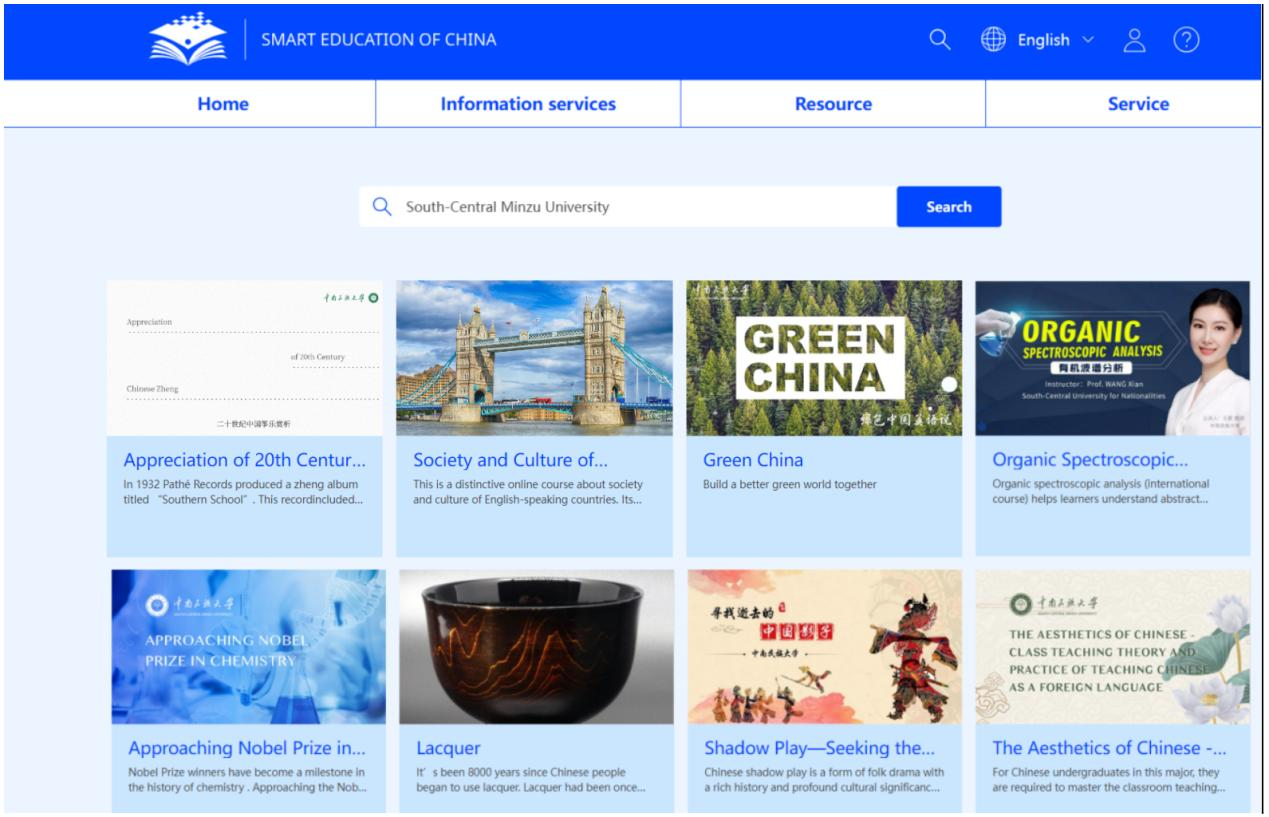On January 30, 2024, the World Conference on Digital Education commenced in Shanghai, a joint effort by the Ministry of Education, the Chinese National Commission for UNESCO, and the Shanghai Municipal People’s Government. Under the theme “Digital Education: Application, Sharing, Innovation”, this pivotal conference heralded the launch of the international version of the China National Smart Education Public Service Platform. Among the highlights were eight advanced MOOCs from SCMU, showcasing our commitment to digital education on a global stage.

Eight Courses from SCMU. Photo Provided by Yang Bing
The courses made available include “Shadow Play” by Pan Jun and “Lacquer” by Zhang Zhigang from the School of Fine Art, “Green China” by Luo Qi and “Society and Culture in English-speaking Countries” by Feng Yanling from the School of Foreign Languages, “The Aesthetics of Chinese” by Liu Yang from the School of Literature, Journalism and Communication, “Appreciation of 20th Century Chinese Zither Music” by Li Liangzi from the School of Music and Dance, and “Organic Spectroscopy Analysis” and “Approaching Nobel Prize in Chemistry” both by Wang Xian from the School of Chemistry and Materials Science. These courses not only highlight their unique aspects but also to amplify the narrative of China’s rich heritage and contemporary advancements.
Particularly, “Shadow Play” intricately captures the essence of traditional Chinese folk drama and performance art, while “Green China” narrates China’s environmental stories to a global audience, advocating for a greener, more sustainable world. Furthermore, “The Aesthetics of Chinese” aspires to kindle a worldwide passion for the Chinese language and culture, emphasizing the sharing of this heritage as a noble contribution to the global community. This initiative is instrumental in fostering linguistic and cultural exchanges, especially within the Belt and Road Initiative’s framework, underscoring its role as both a sacred duty and a purpose-driven mission.
The platform supports six UN official languages: Chinese, English, French, Russian, Spanish, and Arabic, and is structured into three primary sections: news columns, resource services, and a government affairs hall. This structure aims to provide comprehensive learning guidance and governmental services. Initially, the resource service section launched with approximately 780 courses. Looking ahead, SCMU is poised to further engage in international exchanges and cooperation projects related to online teaching. Initiatives like “MOOC Going Global” exemplify the dedication to sharing outstanding online educational achievements and contributing to the global higher education landscape by offering access to more high-quality MOOCs internationally.
Edited by Liu Qiong, Reviewed by Lei Changsheng